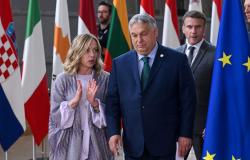When the Israeli army announced a few days ago that it had a plan for an offensive in Lebanon against Hezbollah in a few hours the price of power generators increased four times in the Haifa region, 30 kilometers from the Lebanese border.
Something similar had happened in the days of the conflict between Israel and Iran following the bombing of Tehran’s embassy in Damascus. But this time the Israelis believe that Hezbollah could do more harm than the ayatollahs of Tehran did militarily, engaged in the early presidential race following the death of President Ebrahim Raissi in a mysterious helicopter crash. Hezbollah, according to the Israelis themselves, has an arsenal of 150 thousand rockets, and would be able to hit the Jewish state with 5 thousand bombs a day.
And this is not the only thing that worries Tel Aviv: the technology of the Islamic movement can affect strategic power relations that have so far seen Israel as an unbeatable and untouchable superpower.
The war, as in 2006, is ready to explode despite American mediation attempts entrusted to a controversial former Israeli officer Amos Hochstein who has made a career in the corridors of American power and yesterday in Washington, together with Secretary of State Blinken, met with Israeli defense minister Gallant visits the US.
Hochstein rightfully enters that gallery of characters and organizations described in the latest important book by the historian Ilan Pappe – «Lobbying for Zionism on both sides fo Atlantic» – which we don’t think will have many reviews in our area. Hochstein is the one who developed and gave substance to US strategies in Europe and the Middle East. It was he who blew up the South Stream, the gas pipeline between Russia-Turkey-Italy which was supposed to bypass Ukraine, Biden turned to him to close North Stream 2, the pipeline between Russia and Germany.
One of the causes of the conflict with Moscow. Washington is now playing the Hochstein card in the Middle East – who in 2022 mediated the agreement between Lebanon and Israel on maritime borders – to avoid another war between Hezbollah and the Israelis in an explosive mix with the ongoing massacre in Gaza where Prime Minister Netanyahu does not seek peace but an impossible “total” victory. Hochstein is a strange figure of a mediator who reveals the lacerating contradictions of American foreign policy, poised between diplomacy with ambiguous contours and destabilizing moves of devastating scope, oscillating between loyalty to the primary interests of Washington, those of the Jewish state and the business lobbies and military.
These are the characters on the field who are at least as worrying as the situation they are supposed to manage.
After the Hamas attack on October 7, Hezbollah triggered clashes along the southern border of Lebanon in solidarity with the Palestinians and to ease the pressure on the Islamist movement. In reality, after the 40-day war in 2006, on this front, where the UN military force of the Unifil mission is present (a thousand Italian soldiers), tension remained high but without potential escalation.
In recent months, everything has changed. Israeli attacks in Lebanon have become increasingly heavy, killing 450 people, including dozens of civilians. In turn, Hezbollah has carried out military actions with increasingly powerful drones, while Israel has struck deeply and with targeted assassinations, such as the one that killed Hezbollah commander Taleb Sami Abdallah on June 11.
The most interesting militarily fact is that Hezbollah proved capable of shooting down Israeli drones, launched missiles against Tel Aviv jets and even carried out a symbolic attack against a unit of the Israeli air defense shield, the famous Iron Dome . But what is Hezbollah’s goal? According to Lebanese experts, the movement intends to showcase an advanced military and deterrent capacity without starting a large-scale conflict, opposed by Lebanese society but perhaps also by its Iranian ally.
The Israelis on the opposing front not only had to evacuate thousands of people from the northern Galilee but they realized that Hezbollah is capable of using advanced military technologies: something Israel was not used to suffering from its enemies in the region .
Precisely for this reason Gallant went to Washington: to test the willingness of the US and its allies to provide the security umbrella that they had given to Israel when in April Iran attacked – perhaps deliberately without great results – the Jewish State.
And here came the position of the chief of staff of the American joint commands, Charles Brown, according to whom the USA will not intervene alongside Israel in the event of the opening of a war front against Hezbollah, adding that «we want to avoid an escalation also with Iran.” If we are to believe him for once, American pressure could have an effect and this time the boundaries were drawn by a general, not a politician, and perhaps not by chance.





